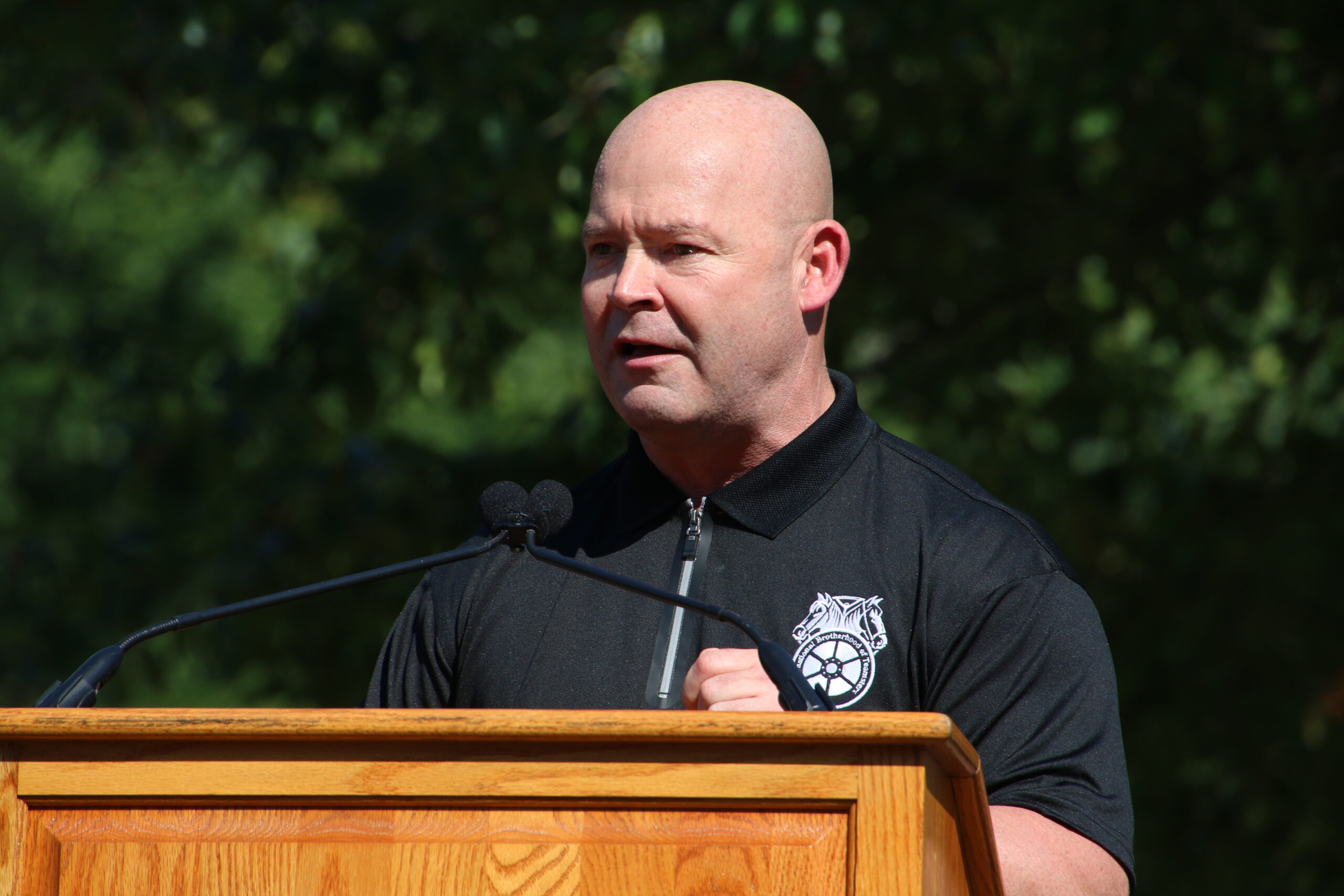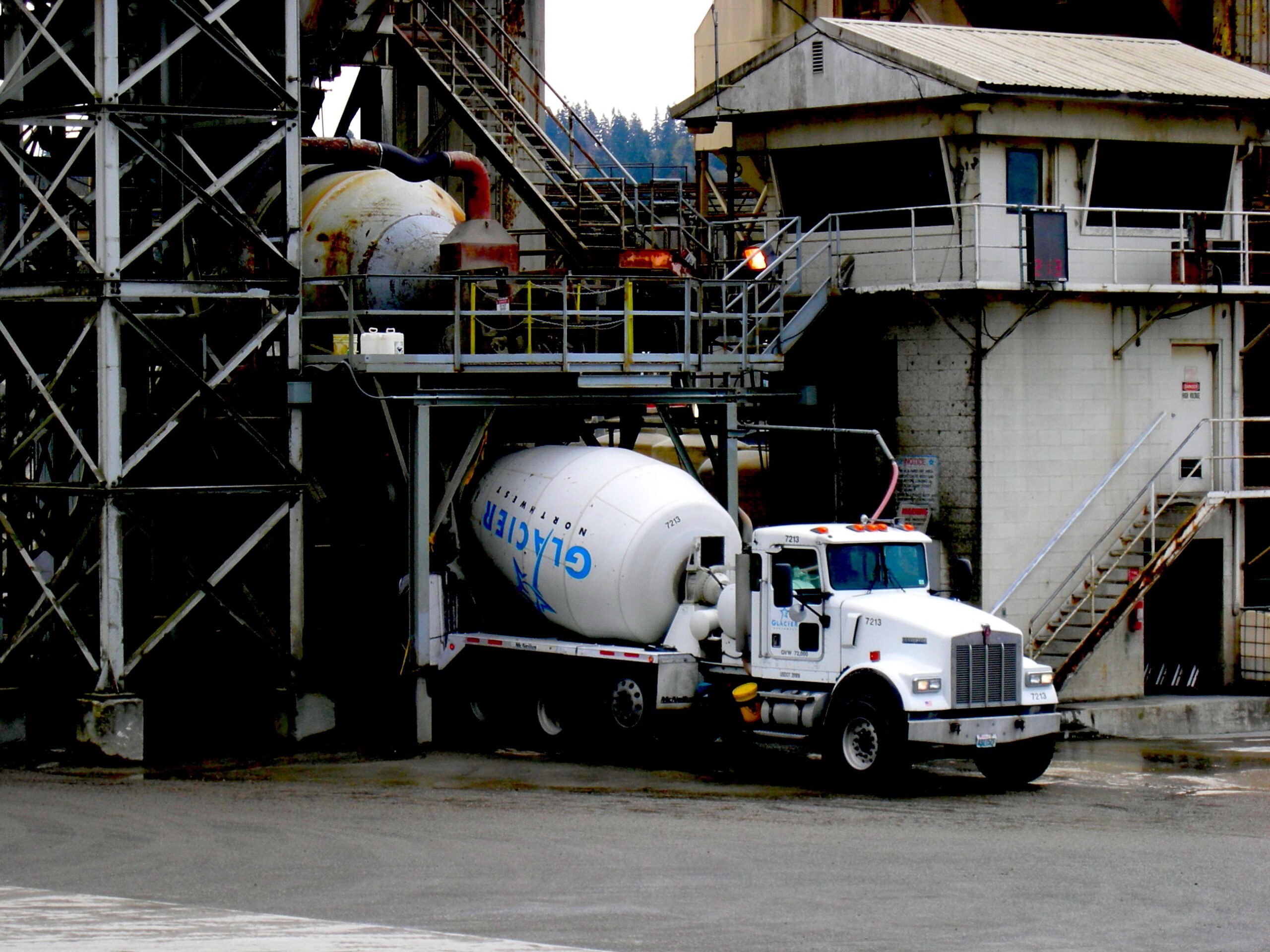Workers and unions are right to be furious at this Supreme Court ruling, writes Alexandra Bradbury. But as the Teamsters’ Sean O’Brien pointed out, the right to strike has not been taken away.

James Earle Fraser’s “Contemplation of Justice” statue outside U.S. Supreme Court. (Matt H. Wade, CC BY-SA 3.0, Wikimedia Commons)
By Alexandra Bradbury
Labor Notes
 The U.S. Supreme Court’s decision last Thursday in Glacier Northwest v. Teamsters Local 174 is outrageous — valuing property over workers’ rights, as it does. But it could have been much worse.
The U.S. Supreme Court’s decision last Thursday in Glacier Northwest v. Teamsters Local 174 is outrageous — valuing property over workers’ rights, as it does. But it could have been much worse.
Unions still have the right to strike. Employers still can’t generally sue unions in state court for losses caused by strikes. But the decision does open the door to whittling away those rights more in the future.
[Related: US Supreme Court About to Eviscerate the Right to Strike]
The practical impact of the Court’s decision is that employers will be suing unions more often for alleged property damage caused by strikes — and that therefore unions (and their attorneys) are likely to be more cautious.
But the Court did not do what many had feared it would do in this case: overrule longstanding precedent that employers generally cannot sue unions in state court over activities — like strikes — covered by the National Labor Relations Act.
Instead, it found that this case fell under an already-existing exception for intentional damage to employer property or failure to take reasonable precautions to prevent such damage.
Workers and unions are right to be furious at this ruling. But it’s important not to sensationalize or overstate it — which could do more damage to the right to strike than the ruling itself does, by making workers scared to exercise it.

Teamsters’ Sean O’Brien at a 2022 rally in Philadelphia. (Ted Merriman, CC BY-SA 4.0)
“American workers must remember that their right to strike has not been taken away,” said Teamsters President Sean O’Brien in response to the ruling. “All workers, union and nonunion alike, will forever have the right to withhold their labor.” His statement went on:
“The Teamsters will strike any employer, when necessary, no matter their size or the depth of their pockets. Unions will never be broken by this Court or any other.
Today’s shameful ruling is simply one more reminder that the American people cannot rely on their government or their courts to protect them. They cannot rely on their employers.
We must rely on each other. We must engage in organized, collective action. We can only rely on the protections inherent in the power of our unions.”
Hardened Concrete
The question the Supreme Court considered in the Glacier case was whether the employer could sue Teamsters Local 174 in state court over the allegedly intentional destruction of the company’s concrete when striking drivers who had set out with deliveries of ready-mix concrete returned their loaded trucks, requiring the company to dispose of it before it set.
Prior court cases say that an employer can’t sue a union in state court over activity arguably covered by the National Labor Relations Act. Instead, the employer has to go to the National Labor Relations Board.
There is an exception, though, if striking employees intentionally damage employer property or don’t take reasonable precautions to protect employer property. For example, in one case, employees walked out of a foundry when molten iron was ready to be poured — which the court found could have caused substantial property damage.
This exception is narrow: property damage that is intentional or caused by a lack of reasonable precautions. It doesn’t include things like economic losses due to temporary closure of a store or factory, strawberries rotting in the field because farmworkers are on strike, or milk going sour in the fridge because baristas have walked out.

The Glacier Northwest cement works, Kenmore, Washington, 2007. (Joe Mabel, CC BY-SA 3.0)
The trial court in Washington state dismissed Glacier’s claim because it found that the Teamsters’ strike action was arguably protected under the National Labor Relations Act. The Washington State Supreme Court affirmed.
The United States Supreme Court has now overruled that decision and sent the case back to the trial court, because it says that — assuming the facts alleged in the employer’s complaint are true — the union did not take reasonable precautions to prevent concrete from hardening.
My take on the Glacier Northwest decision is that it could have been worse – but the Court’s articulation of when a union must take “reasonable precautions” to protect the employer’s perishable product will mean more lawsuits against striking unions
— Charlotte Garden (@CharlotteGarden) June 1, 2023
The Supreme Court did not order the trial court to decide against the union, just that the case be allowed to proceed. And it left open the possibility for the state courts to dismiss the case again, depending on what the NLRB does about a pending unfair labor practices complaint against Glacier related to the same strike.
The NLRB issued its complaint against Glacier after the Washington State Supreme Court affirmed dismissal of the state court case. The U.S. Supreme Court explicitly did not rule on whether the lawsuit would have been preempted if the NLRB had issued the complaint earlier.
Chipping Away
Depending on how future cases play out in state and federal court, Glacier could end up being a relatively small change to labor law or another in an escalating series of court decisions chipping away at the right to strike.
Already the laws are stacked against powerful strikes. Employers routinely obtain injunctions limiting where and how many strikers can picket; economic strikers can be permanently replaced; secondary targets often can’t be picketed; and so on.
Comparisons to other areas of law, like abortion rights, are useful. Roe v. Wade was not overturned in one night. It took nearly 50 years of legal battles in which courts questioned and undermined Roe v. Wade, until a conservative majority finally overruled it.
Similarly, right-wing attorneys and judges will try to build on Glacier to expand employers’ ability to sue unions. But for the moment, the labor movement may have dodged a bullet.
Alexandra Bradbury is the editor of Labor Notes.
This article is from Labor Notes.
The views expressed are solely those of the authors and may or may not reflect those of Consortium News.
Support CN’s Spring
Fund Drive Today


Partisan hacks can only take away our rights when we let them. They never ‘gave’ us the rights, and thus they can not take them away.
The Bosses and the Bankers never ‘gave’ us a right to strike, nor a right to organize. Those were both ‘rights’ that were won the way rights are always won from the Bankers, Bosses and Tyrants. By human beings asserting that they have those rights and that they were going to fight to defend them.
The bosses don’t give you nuthing. Never have, never will.
Except these days, with international corporations, any labor movement must also be international. A right to strike here means nothing when the Evil Corp can just make workers in Vietnam work harder and longer to take up the slack. Labor must be organized on the same scale as the Bosses. If the Bosses are international, then the workers have to be international.
The working class is an international class. The workers of the world are the brothers and sisters of American workers. That is what the Socialist Equality Party fights for: international socialism.
What good is the right to strike if your right to organize is limited and blocked? Government and business combined eliminated union power, and Democrats did not lift a finger in defense of Union rights.
Both parties worked for big corporations against labor interests concerning labor and tax laws. The government club of millionaires only knows what is good for them.
Would labor be strong enough to really support demonstrations demanding an increase in the minimum wage or the right to freely organize a service industry nationwide?
Government and industry are hostile to unions and have indoctrinated working people that unions are bad for them.
All of what you say is true. The solution is to work for the international working class by joining the struggle for socialism. Nothing is to be achieved by continuing to support the capitalist system.